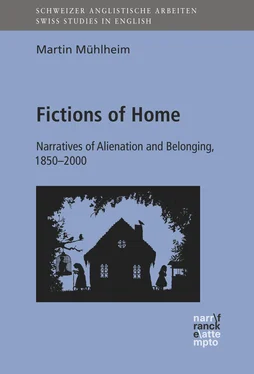Martin Mühlheim - Fictions of Home
Здесь есть возможность читать онлайн «Martin Mühlheim - Fictions of Home» — ознакомительный отрывок электронной книги совершенно бесплатно, а после прочтения отрывка купить полную версию. В некоторых случаях можно слушать аудио, скачать через торрент в формате fb2 и присутствует краткое содержание. Жанр: unrecognised, на английском языке. Описание произведения, (предисловие) а так же отзывы посетителей доступны на портале библиотеки ЛибКат.
- Название:Fictions of Home
- Автор:
- Жанр:
- Год:неизвестен
- ISBN:нет данных
- Рейтинг книги:3 / 5. Голосов: 1
-
Избранное:Добавить в избранное
- Отзывы:
-
Ваша оценка:
- 60
- 1
- 2
- 3
- 4
- 5
Fictions of Home: краткое содержание, описание и аннотация
Предлагаем к чтению аннотацию, описание, краткое содержание или предисловие (зависит от того, что написал сам автор книги «Fictions of Home»). Если вы не нашли необходимую информацию о книге — напишите в комментариях, мы постараемся отыскать её.
In detailed readings of one film and six novels, a view is developed according to which home, as a spatio-temporal imaginary, is rooted in our species being, and as such constitutes the inevitable starting point for any progressive politics.
Fictions of Home — читать онлайн ознакомительный отрывок
Ниже представлен текст книги, разбитый по страницам. Система сохранения места последней прочитанной страницы, позволяет с удобством читать онлайн бесплатно книгу «Fictions of Home», без необходимости каждый раз заново искать на чём Вы остановились. Поставьте закладку, и сможете в любой момент перейти на страницу, на которой закончили чтение.
Интервал:
Закладка:
Given E.T.’s function as Elliott’s (initially) uncannyuncanny double, there is a good case to be made that the alien in fact represents Elliott’s unconscious. Thomas SebeokSebeok, Thomas, for instance, has pointed out that E.T. and Elliott are not merely friends, but in a profound sense “identical, as the boy’s very name, E lliot T , insinuates” (661). From ‘Elliott’ to ‘E.T.’ by means of condensation and displacement: we are faced with two of the crucial mechanisms of the Freudian unconscious.32 Moreover, in one scene in SpielbergSpielberg, Steven’s film E.T. makes a notably appreciative noise when seeing Elliott’s mother, Mary, in a tight-fitting Halloween costume, as if Elliott’s OedipalOedipus complex desiredesire for Mary had been displaced onto his alien friend. In fact, a scene was cut from the final version of the film that would have rendered this OedipalOedipus complex dimension much more explicit, with E.T. going into Mary’s room and leaving some candy on her pillow to imply “that E.T. had a crush on Mary” (MathisonMathison, Melissa 104). One may therefore speculate that the filmmaker’s decision to cut the scene constituted an act of censorshipcensorship in the precise psychoanalyticpsychoanalysis and psychoanalytic criticism sense of an attempt to repress inadmissible desires.
Another sequence, at the end of which Elliott kisses a girl in schoolschool, not only strengthens the idea that E. T. embodies Elliott’s unconscious, but also suggests that even desiredesire itself – that seemingly innermost part of our nature – is in fact shaped at least in part by public forces. In this complex sequence, the film intercuts two different scenes: on the one hand, we see E.T. exploring the family home while everyone is away at school or work, and on the other hand we follow Elliott’s adventures in the classroom. Throughout the sequence, the telepathic link between E.T. and Elliott is emphasized, as when E.T. drinks some beer that he discovers in the fridge, which leaves not only him, but also Elliott notably inebriated (with E.T. bumping into the kitchen cabinet, and Elliott winking at a pretty girl and then slowly sliding off his chair, onto the classroom floor). Both the alien and the boy eventually recover their wits, and we see E.T. watching TVTV while Elliott is now in biology classclass, where he and his classmates are expected to anesthetize frogs and then to dissect them. Elliott, however, when looking at the helpless, lonely frog on his desk, is suddenly reminded of E.T.; muttering “Save him” to himself, the boy first frees his own frog and then proceeds to liberate the others (MathisonMathison, Melissa 88) – which, unsurprisingly, leads to chaos in the classroom. The film now cuts back to E.T. watching TV, and we find him watching a “soppy lovelove scene” from the movie The Quiet Man (MathisonMathison, Melissa 90). E.T. watches engrossed as the male protagonist grabs the arm of his female counterpart, pulling her close in a dramatic sweep and kissing her as passionately as only movie heroes can. Next, we return to the classroom, where Elliott will soon re-enact this heterosexualheterosexual fantasyfantasy scenario with the pretty girl he had winked at earlier on. The scene thus bears out Slavoj ŽižekŽižek, Slavoj’s claim that cinema “doesn’t give you what you desire; it tells you how to desire” ( The Pervert’s Guide to Cinema ) – which in turn implies that our desires are to some extent alien to ourselves, shaped and mediated in crucial ways by the publicpublic spaces mediamedia discourses to which we are exposed even in the privacyprivacy of our homes.33
It is at this point that we must note that E.T.’s role as a representationrepresentation of Elliott’s unconscious shifts from being at first associated with the IdId (e.g. OedipalOedipus complex desiredesire) to becoming an embodiment of the super-egosuper-ego. If E.T., in the beginning, provides Elliott merely with a mirror image of his own psychic drives, then after his death and resurrection the alien becomes an awe-inspiring, messianic figure who urges Gertie to “[b]e good,” and who thus voices – very much in the Name of theName of the Father Lacanian Father – the moral imperative commonly associated with the super-ego (HomerHomer, Sean 57–58; Thurschwell 48). In passing, we may observe that E.T. tells only the female child to be good, and that this is perhaps due to the misogynistmisogyny biasbias that Phyllis DeutschDeutsch, Phyllis detects in SpielbergSpielberg, Steven’s film (12–13). More importantly, for the time being, we must note that E.T.’s death is the moment when the telepathic link between the alien and Elliott is finally broken, as if to emphasize that the boy has now moved beyond his earlier, narcissisticnarcissism identification with the double or mirror-image, and instead accepted the symbolic call of a newfound father figure.34 It is precisely such intimate notions as desire and the uncannyuncanny, as well as the question of how the father’s material and symbolic position within the familial home relates to wider socio-historical contexts, which will be explored in detail in the discussion of William FaulknerFaulkner, William’s Absalom, Absalom! in chapter four.
Alienation and Oppression at Home: Feminist and MarxistMarxism and Marxist criticism Critiques
Some of the most powerful critiques of the father’s position within the family home have arguably come from feministfeminism and feminist criticism thinkers. The institution of marriagemarriage, for instance, has historically been deeply problematic for women – an insight that is memorably expressed by Bathsheba Everdene in Thomas HardyHardy, Thomas’s Far from the Madding Crowd (1874), when she explains to Liddy, her maid and confidante, why simply to run away from an unhappy marital union does not constitute a viable solution for her:
A runaway wife is an encumbrance to everybody, a burden to herself, and a byword – all of which make up a heap of misery greater than any that comes by staying at home, though this may include the trifling items of insultsinsult, beating and starvation. Liddy, if you ever marry – God forbid that you ever should – you’ll find yourself in a fearful situation; but mind this, don’t you flinch. Stand your ground and be cut to pieces. (299)
In a deeply patriarchalpatriarchy society, where married women are seen as belonging to their husbands in the sense of being their rightful propertyproperty, it seems illusory to Bathsheba that leaving her husband would result in anything as desirable as freedomfreedom. On the contrary, for a woman in VictorianVictorian BritainBritain such an act would mean enduring consequences that are so severe that it appears preferable to Bathsheba to stay in a home where one is exposed to “insultsinsult, beating and starvation” – which is, as feminists have long pointed out, a sadly appropriate description of the kinds of home in which many women have been forced to live (BluntBlunt, Alyson and DowlingDowling, Robyn 125–126). In short, true to the beliefbelief so memorably expressed in the slogan that ‘the personal is political,’ feministfeminism and feminist criticism critics have explored the extent to which the private space of the home is in fact intricately related to, and indeed inseparable from, the genderedgendering division of the publicpublic spaces spherepublic sphere characteristic of patriarchalpatriarchy society.35
One key historical moment in the construction of modern gender differencegender difference is the so-called Age of EnlightenmentEnlightenment. Jean-Jaques RousseauRousseau, Jean-Jacques, for instance, argued that women were by nature made to be subjugated, dependent on the judgmentjudgment of men, and unsuited to abstract and speculative thought ( Émile 411, 418, and 448) – views vehemently opposed even at the time (e.g. by Mary WollstonecraftWollstonecraft, Mary in A Vindication of the Rights of Women ) . As Dorinda OutramOutram, Dorinda points out, the ideas of philosophers like RousseauRousseau, Jean-Jacques attempted to limit women’s sphere to the domestic world, and some historians suggest that industrializationindustrialization contributed to such a ‘sexual division of laborlabor.’ The association of women with the domestic spheredomestic sphere in fact preceded the period of industrialization, and as OutramOutram, Dorinda notes the true Enlightenment innovation was its use of medical or biological ‘evidence’ to naturaliznaturalizatione earlier ideas about gender difference (91). At the same time, OutramOutram, Dorinda continues, women in fact assumed eminently important functions in the creation and maintenance of an Enlightenment public spherepublic sphere, both as hosts of salons and as authors (94–96). Accordingly, critics like Amanda VickeryVickery, Amanda have cautioned against the assumption that men and women truly lived in entirely ‘separate spheresseparate spheres’ (413; see Sharon MarcusMarcus, Sharon 6–7; Michael McKeonMcKeon, Michael, The Secret History of DomesticityDomesticity 168–170).
Читать дальшеИнтервал:
Закладка:
Похожие книги на «Fictions of Home»
Представляем Вашему вниманию похожие книги на «Fictions of Home» списком для выбора. Мы отобрали схожую по названию и смыслу литературу в надежде предоставить читателям больше вариантов отыскать новые, интересные, ещё непрочитанные произведения.
Обсуждение, отзывы о книге «Fictions of Home» и просто собственные мнения читателей. Оставьте ваши комментарии, напишите, что Вы думаете о произведении, его смысле или главных героях. Укажите что конкретно понравилось, а что нет, и почему Вы так считаете.












